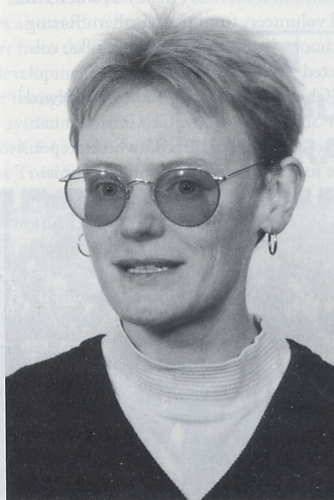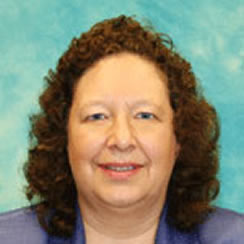PSYCHOSOCIAL
1966 Lawler RH, Nakielny W, Wright NA. Psychologic implications of cystic fibrosis. Canad M A J 1966; 94:1043-1046. [PubMed]
A detailed evaluation of 11 patients aged five to 17 years. Not unexpectedly extremely marked intrapsychic and interpersonal conflicts occurred in all cases. The authors considered that both children and parents required psychological treatment also the doctor-family relationships required further study.
The editor of the Year Book of Pediatrics, Sydney Gellis, felt the almost unbearable psychologic problems should be treated actively. He questioned “the support conferred by the CF Foundation which undoubtedly makes the family more knowledgeable about the condition and more capable of coping with the problems involved, but also makes parents more aware of the prognosis”. He suspected that a minister or priest would prove more helpful than a psychiatrist in assisting parents.
It was just this approach, exemplified by Gellis, that made the situation even more unbearable for the parents who usually appreciated an aggressive therapeutic approach, as adopted by paediatricians such as Shwachman, di Sant’Agnese and Leroy Matthews even if they realised that the end was inevitable. It was at the CF centres of such paediatricians that this approach resulted in a steady improvement in prognosis over the years so that median survival had increased to over 35 years by 2009 without any specific treatment to correct the basic defect being available.
So obviously Gellis (1914-2002) disliked psychiatrists as well as paediatricians who treated children with cystic fibrosis!! It is perhaps not surprising that not one of his 206 publications listed on Medline concerned cystic fibrosis. He was described as “the quintessential pediatric generalist who was not deterred by the growing army of “-ologists”!
1973 McCrae WM, Cull AM, Burton L, Dodge J. Cystic fibrosis. Parent’s response to the genetic basis of the disease. Lancet 1973; I: 141-143. [PubMed]

Morris McCrae
One of the early psychosocial studies by paediatricians responsible for children with CF in Edinburgh (Morris McCrae) and in Cardiff (John Dodge). Parents at the time had a poor understanding of the genetics of CF – and particularly poor instruction from the diagnosing paediatrician was common. There was no means of antenatal diagnosis at the time and 70% of families wanted no further children.
No paediatrician is exempt from occasional lapses in communication skills – the first question to Morrice McCrae after a lecture he gave to parents of CF children in Leeds was “What is a sibling?” – a term he had used frequently during the lecture! Morrice McCrae was one of the few paediatricians with a significant involvement with CF at this time and was responsible for developing the Edinburgh Paediatric CF clinic.
1977 Gayton WF, Friedman SB, Tavormina JF, Tucker F. Children with cystic fibrosis: I. Psychological test findings of patients, siblings, and parents. Pediatrics 1977; 59:888-894.[PubMed]
One of the early papers on the psychological aspects of cystic fibrosis. Not surprisingly, in 43 families both fathers (32%) and mothers (22%) had scores in the range suggestive of emotional disturbance – in terms of decreased family satisfaction and family adjustment. The results did not support previous estimates of an increased incidence of emotional disturbance in children with cystic fibrosis nor in siblings of affected children.
1981 Norman AP. Cystic Fibrosis and normality. In: Warwick WJ. 1000 Years of Cystic Fibrosis. Minnesota 1981:84-89.

Archie Norman
A paper by Archie Norman given at a meeting of leaders of CF research and care who were invited to attended this meeting in Minnesota in 1981 organised by Dr. Warren Warwick. Dr. Archie Norman pleads for a change in attitude. “It was time we stopped talking in terms of the most lethal genetically determined disease” and always discussing topics such as the “problems of individuals expected to die in early childhood”.
1986 Orenstein DM, Wasserman AL. Munchausen syndrome by proxy simulating cystic fibrosis. Pediatrics 1986; 78:621-624. [PubMed]
Professor Sir Roy Meadow described Munchausen by proxy in 1977 (Meadow R. Munchausen syndrome by proxy. The hinterland of child abuse. Lancet 1977; ii: 343-345. & Meadow R. Munchausen syndrome by proxy. Arch Dis Child 1982; 57:92-98). This is the first report where CF was the falsified disorder. The mother falsified the history of her child, cunningly altered sweat tests and stool fat analyses and stole sputum from patients with CF to make her child appear to have cystic fibrosis. Previous reports of the syndrome had concerned single signs or symptoms but the present case involved the complex features of a multisystem genetic disorder.
Subsequently 11 further reports of Munchausen or Munchausen by proxy with CF of the falsified disorder appeared in the literature up to 2012.
1993 Walters S, Britton J, Hodson ME. Demographic and social characteristics of adults with cystic fibrosis in the United Kingdom. BMJ 1993; 306:549-552. [PubMed]

Sarah Walters
A survey of adults with CF in the UK by Dr Sarah Walters, a Birmingham doctor who herself has CF, which gave a picture of the relatively new and expanding population of adults with cystic fibrosis in the UK. 1052 adults were members of the Association of Cystic Fibrosis Adults UK, accounting for the majority of adults. Most were living fulfilling lives. 26% of men and 44% of women were married or cohabiting. 55% were working, fewer than 56% had less than two weeks’ sick leave a year. Half of those not employed gave ill health as the reason. Unfortunately, revealing that they had CF at job interviews reduced the likelihood of being employed for those with mild to moderate disease. People with CF had been less successful than the general population in achieving O level or equivalent qualifications, but more successful in achieving A level or higher qualifications.
So contrary to an image of chronic ill health and disability, a high proportion of adults with CF were living full and productive lives – marked contrast to some of the earlier reports of adults with CF.
A further survey by Sarah Walters in 2000 showed considerable further improvement in many aspects of the condition and also the hospital care of the adults with CF in the UK.
2000 Gee L, Abbott J, Conway SP, Etherington C, Webb AK. Development of a disease specific health related quality of life measure for adults and adolescents with cystic fibrosis. Thorax 2000; 55:946-954. [PubMed]
Health related quality of life (QOL) measurement is regarded as important in determining the impact of disease on daily functioning and subsequently informing interventions. The questionnaire described here is a fully validated disease specific measure consisting of 52 items across nine domains of functioning which have been identified by, and are of importance to, adolescents and adults with cystic fibrosis.
This is a useful measure for clinical trials and longitudinal studies and QOL measurements are required by many journals where patient outcomes are featured (also Quittner AL et al. Translation and linguistic validation of a disease-specific quality of life measure for cystic fibrosis. J Pediatr Psychol 2000; 25:403-414. ).[PubMed]
2005 Quittner AL, Buu A, Messer MA, Modi AC, Watrous M. Development and validation of The Cystic Fibrosis Questionnaire in the United States: a health-related quality-of-life measure for cystic fibrosis. Chest 2005; 128:2347-2354. [PubMed].

Alexandra Quittner
The Cystic Fibrosis Questionnaire (CFQ) is a disease-specific instrument that measures health-related quality of life (HRQOL) for adolescents and adults with cystic fibrosis (CF) > or = 14 years, consisting of 44 items on 12 generic and disease-specific scales. Versions of the CFQ are also available for children with CF and their parents. This study evaluated the psychometric properties of the CFQ in a national study at 18 CF centers in the United States. The results demonstrated that the CFQ-teen/adult is a reliable and valid measure of HRQOL for individuals with CF. It may be utilized in clinical trials to assess the effects of new therapies, to document the progression of disease, and to inform clinical practice.
2008 Bryon M, Shearer J, Davies, H. Eating disorders and disturbance in children and adolescents with

Mandy Bryon
cystic fibrosis. Children’s Health Care 2008; 37:67-78.
Also – Shearer JE. Bryon M. The nature and prevalence of eating disorders and eating disturbance in adolescents with cystic fibrosis. J R Soc Med 2004; 97 Suppl 44:36-42. [PubMed]
Dr Mandy Bryon is Consultant Clinical Psychologist and Joint Head of Paediatric Psychology at Great Ormond Street Hospital in London. She is a leading authority on psychological issues in children with CF and a member of the CF team at Great Ormond Street.
2012 Abbott J, Hurley MA, Morton AM, Conway SP. Longitudinal association between lung function and health-related quality of life in cystic fibrosis. Thorax 2012 Nov 9. [Epub ahead of print][PubMed]

Jan Abbott
The relationship between lung function and HRQoL over time is unknown. This work assesses the natural progression of HRQoL reporting over many years and compares assessments across a whole decade and evaluates the relationship between lung function and HRQoL longitudinally.
Demographic (age, gender), clinical (FEV(1)% predicted, body mass index, diabetes, Burkholderia cepacia complex, intravenous access device and nutritional status) and HRQoL (Cystic Fibrosis Quality of Life Questionnaire) variables were obtained every 2 years over a 12-year period (seven time points from 1998 to 2010). HRQoL and lung function declined slowly over time and significant decade changes were observed for FEV(1)% predicted and the nine domains of the Cystic Fibrosis Quality of Life Questionnaire. The results of random coefficient modelling indicated that, at the population level, decreasing FEV(1)% predicted was associated with decreasing HRQoL after adjusting for confounding variables. However, the percentage of patients for whom a decrease in lung function was associated with a decrease in HRQoL differed according to the quality of life domain
2016 Barker DH, Quittner AL. Parental Depression and Pancreatic Enzymes Adherence in Children With Cystic Fibrosis. 2016; 137(2):e20152296. [PubMed]

David Barker
Parent caregivers often report elevations in depression, and parental depression may adversely affect children’s adherence. This prospective study evaluated adherence to pancreatic enzymes in 83 patients (1-13 years). Adherence to pancreatic enzymes was 49.4% +/- 3.4%. Adherence was higher at school (94.4% +/- 6.1%) than at home (42.3% +/- 3.1%), and higher for toddlers (50.6% +/- 5.2%) than for school-aged children (37.5% +/- 3.7%). Parents reported high rates of depressive symptoms (30% in the clinical range, 18% with moderate symptoms). Children of parents with symptoms of depression versus those without were less adherent (34.8% +/- 4.5% vs 48.5% +/- 4.1%), and adherence to enzymes was significantly related to 3-month weight outcomes. Average gain in weight z scores across 3 months was 0.5 +/- 0.2for children who were >50% adherent and -0.1 +/- 6.1for children who were <33% adherent. Parental depression had a signifcant, indirect effect on weight via adherence (-0.005 +/- 0.003 gain in weight z score per CES-D unit ).
The authors concluded the high rates of parental depressive symptoms, coupled with its negative effects on adherence, suggest that measuring and treating parental depression may improve children’s adherence to therapy.
– The burden and stress of having a child with CF for the parents is well seen in this study (30% in the clinical range of depression and 18% with moderate symptoms) – also the adverse effect of such stress on adherence and ultimately on the physical condition of their child. it is not surprising that the majority of people who have close experience of CF would avoid having an affected child if given the choice through population or antenatal screening.
Dr. David Barker (figure) is a staff psychologist at Rhode Island Hospital in the Department of Child and Adolescent Psychiatry.
2016 Bourke SJ, Booth Z, Doe S, Anderson A, Rice S, Gascoigne A, Quibell R. A service evaluation of an integrated model of palliative care of cystic fibrosis. Palliat Med 2016: 30(7):698-702. [PubMed]
Patients with advanced cystic fibrosis have severe symptoms with a complex trajectory of exacerbations and recovery. They are often awaiting lung transplantation, and many die without receiving specialist palliative care.We introduced an integrated model whereby palliative specialists joined the cystic fibrosis team to provide palliative care in parallel with standard care. A service evaluation of this model of care was undertaken in a prospective case series documenting symptoms and outcomes, the views of the cystic fibrosis team and the experience of the palliative specialists.Over 3 years, 28 (10%) of 282 patients attending the cystic fibrosis centre had specialist palliative care. They had advanced lung disease (mean forced expiratory volume in 1 s (FEV1) = 0.86 L (25% predicted)), and 17 died: 6 were on a transplant waiting list at death; 10 were unsuitable and 1 died post transplantation. All who died over these 3 years had specialist palliative care. Four patients had successful transplants. Assessment showed a high prevalence of breathlessness, cough, pain, vomiting and fatigue, with a significant impact on daily life.The cystic fibrosis team rated this model of care highly, felt that palliative care should be members of the team, and thought that patients had found it helpful. The palliative specialists gained knowledge of cystic fibrosis, found it beneficial to meet patients earlier in the disease, and identified unmet needs in managing bereavement and the effects of deaths on other patients with cystic fibrosis.This model has been successful in overcoming the difficulties in access to specialist palliative care for patients with cystic fibrosis.
– Unfortunately still an important area of care and management for many people with CF and this is a helpful record of experience from the team at the Adult CF Unit at Newcastle UK.
2016 Dellon EP, Chen E, Goggin J, Homa K, Marshall BC, Sabadosa KA, Cohen RI. Advance care planning in cystic fibrosis: Current practices, challenges, and opportunities. J Cyst Fibros. 2016 Jan;15(1):96-101. doi: 10.1016/j.jcf.2015.08.004. Epub 2015 Sep 8.[PubMed] Studies in cystic fibrosis report late attention to advance care planning (ACP). The purpose of this study was to examine ACP with patients receiving care at US adult CF care programs.Chart abstraction was used to examine ACP with adults with CF dying from respiratory failure between 2011 and 2013.The authors reviewed 210 deaths among 67 CF care programs. Median age at death was 29 years (range 18-73). Median FEV1 in the year preceding death was 33% predicted (range 13-100%); 68% had severe lung disease with FEV1<40% predicted. ACP was documented for 129 (61%), often during hospitalisation (61%). Those with ACP had earlier documentation of treatment preferences, before the last month of life (73% v. 35%; p=<0.01). Advance directives were completed by 93% of those with ACP versus 75% without (p<0.01); DNR orders and health care proxy designation occurred more often for those with ACP. Patients awaiting lung transplant had similar rates of ACP as those who were not (67% v. 61%; p=0.55). The frequency of ACP varied significantly among the 29 programs contributing data from four or more deaths.Advanced care planning in CF often occurs late in the disease course. Important decisions default to surrogates when opportunities for ACP are missed. Provision of ACP varies significantly among adult CF care programs.
The authors suggest that careful evaluation of opportunities to enhance ACP and implementation of recommended approaches may lead to better practices in this important aspect of CF care.
2016 Pisaturo M; Deppen A; Rochat I; Robinson WM; Hafen GM. Death after cessation of treatment by cystic fibrosis patients: An international survey of clinicians. Palliative Med 2016 Mar 15.[PubMed]

Maria Soriano-Pisaturo
An online survey was distributed across three continents. Distribution to the medical directors of the cystic fibrosis centres affiliated with the US Cystic Fibrosis Foundation, Cystic Fibrosis Australia (inclusion of New Zealand) and to every clinician member of the European Cystic Fibrosis Society.The clinicians surveyed reported more than 200 cystic fibrosis patients not considered being terminally ill and, who voluntarily ceased treatment. Detailed data were reported in 102 patients (4 children, 25 adolescents and 73 adults). Only one child, six adolescents and one adult were judged by clinicians not to be competent to make the decision to stop treatment.
Time-consuming and low immediate-impact therapies, such as respiratory physiotherapy, were most frequently discontinued. Resignation was the main reported reason for discontinuing treatment, followed by reactive depression and lack of familial support. A total of 69% of the patients received palliative care and 72% died in the 6 months following cessation of treatment.These details concerning death of cystic fibrosis patients, not considered to be terminally ill, due to voluntary cessation of treatment are reported in Europe, the United States and Australia.
– Despite the understandable enthusiasm for the new mutation specific treatments, life with CF can prove to be quite intolerable for some people with the condition as evidenced by this study.
Maria A. Soriano-Pisaturo MD (figure) practices Hospice & Palliative Medicine in North Providence, RI. She currently practices at Roger Williams Senior Healthcare Associates and is affiliated with Roger Williams Medical Center.
2016 Quittner AL; Abbott J; Georgiopoulos AM; Goldbeck L; Smith B; Hempstead SE; Marshall B; Sabadosa KA; Elborn S; International Committee on Mental Health; EPOS Trial Study Group. International Committee on Mental Health in Cystic Fibrosis: Cystic Fibrosis Foundation and European Cystic Fibrosis Society consensus statements for screening and treating depression and anxiety. Thorax 2016; 71(1):26-34.Free full PMC article [PubMed]
Studies measuring psychological distress in individuals with cystic fibrosis (CF) have found high rates of both depression and anxiety. Psychological symptoms in both individuals with CF and parent caregivers have been associated with decreased lung function, lower body mass index, worse adherence, worse health-related quality of life, more frequent hospitalisations and increased healthcare costs. To identify and treat depression and anxiety in CF, the CF Foundation and the European CF Society invited a panel of experts, including physicians, psychologists, psychiatrists, nurses, social workers, a pharmacist, parents and an individual with CF, to develop consensus recommendations for clinical care.
– There is agreement in all similar studies and that depression and anxiety are frequent in both children and adults with CF and their parents. It is unlikely that these will lessen even with the newer mutation specific drugs and talk of a “cure”. It is unfortunate that the now extensive knowledge of carrier detection, population and antenatal screening, which allow known carrier couples to choose to have an unaffected child, receive such low priority.
2016 Ullrich G; Bobis I; Bewig B. Parenting stress in mothers with cystic fibrosis. Disabil Rehabil 2016; 38(2):174-9. [PubMed] In line with the only comparable study, mothers with CF seem to be a remarkably resilient group who mostly cope well with parental stress even in the face of a progressive, chronic disease requiring time-consuming treatment. Today, motherhood is increasingly becoming an option in fertile women with cystic fibrosis. The additional burden of parenting seems to be rewarded by fulfilling essential personal goals. The authors advise CF clinics should routinely address a possible wish for a child and to discuss it, openly.
Rowbotham NJ, Smith S, Leighton PA, Rayner OC, Gathercole K, Elliott ZC, Nash EF, Daniels T, Duff AJA, Collins S, Chandran S, Peaple U, Hurley MN, Brownlee K, Smyth AR. The top 10 research priorities in cystic fibrosis developed by a partnership between people with CF and healthcare providers. Thorax. 2017 Aug 4. pii: thoraxjnl-2017-210473. doi: 10.1136/thoraxjnl-2017-210473. [Epub ahead of print] [Pubmed]
The authors conducted a James Lind Alliance Priority Setting Partnership*(vide infra) in CF. Research questions were elicited and then prioritised in successive surveys. A workshop agreed the final top 10. Online methods avoided cross infection and widened participation. The elicitation survey had 482 respondents (1080 questions) and prioritisation survey 677 respondents. Participants were drawn equally from the patient and clinical communities globally.
The group achieved a consensus on 10 research priorities which they consider will be attractive to funders – these were the following.
- What are the effective ways of simplifying the treatment burden of people with cystic fibrosis?
- How can we relieve gastrointestinal symptoms such as stomach pain, bloating and nausea in people with cystic fibrosis?
- What is the best treatment for non-tuberculous mycobacteria in people with CF (including when to start and what medication?
- Which therapies are effective in delaying or preventing progression of lung disease in early life in people with cystic fibrosis?
- Is there a way of preventing CF related diabetes?
- What effective ways of motivation support and technologies help people with cystic fibrosis improve and sustain adherence to treatment?
- Can exercise replace physiotherapy for people with cystic fibrosis?
- Which antibiotic combinations and dosing plans should be used for cystic fibrosis exacerbations?
- Is there a way of reducing the negative effects of antibiotics for example resistance risk and adverse symptoms in people with cystic fibrosis?
- What is the best way of eradicating Pseudomonas aeruginosa in people with cystic fibrosis?
* The James Lind Alliance (JLA) is a non-profit-making initiative, established in 2004. It brings patients, carers and clinicians together in Priority Setting Partnerships (PSPs) to identify and prioritise the Top 10 uncertainties, or unanswered questions, about the effects of treatments. The aim of this is to make sure that health research funders are aware of the issues that matter most to patients and clinicians. The James Lind Alliance is named after a pioneer of clinical trials, James Lind. Three centuries ago, sailors were dying of scurvy. There were many conflicting ideas about how to treat this deadly disease. James Lind, a Scottish naval surgeon, decided to confront these uncertainties by treating his patients within what is thought to have been the first ever clinical trial, comparing the proposed remedies. He allocated two sailors to each of six different treatments for a period of 14 days. His trial showed that oranges and lemons were dramatically better than the other suggested treatments (details from www.jla.nihr.ac.uk)
Dr Nicola Rowbotham (figure) is a paediatrician and Academic Clinical Fellow in Evidence Based Child Health at the University of Nottingham.
Rebecca Keyte, Sophia Kauser, Michail Mantzios, Helen Egan. The psychological implications and health risks of cystic fibrosis pre- and post- CFTR modulator therapy. Chronic Illn 2022 May 3;17423953221099042.doi: 10.1177/17423953221099042.Online ahead of print.[Pubmed]

Rebecca Keyte
Objectives: Cystic Fibrosis (CF) care is entering a period of personalised medicine with the emergence of CF transmembrane conductance regulator (CFTR) modulator therapies. Anecdotally individuals are reporting life-changing effects of modulator therapies, proposing an important area of study.
Methods: Twenty adult participants (males: 8, age range: 22-51 years, average FEV1: 53.45%) were recruited via social media to participate in a semi-structured interview; 17 participants were currently taking Elexacaftor/Tezacaftor/Ivacaftor (Kaftrio).
Results: An appreciation of a “normal life” post-modulator therapy is paramount, with improvements in symptoms and quality-of-life bringing a more urgent imperative for the provision of effective support to encourage positive health and lifestyle choices.
Discussion: In this new era of CF care, there remains many challenges present for the CF community, with participants suggesting that proactive psychological support is required along with proactive awareness regarding health risk behaviours for the current and future CF generations.
Rebecca Keyte is in the Department of Psychology, School of Social Sciences, 34651 Birmingham City University, Birmingham, UK.
G Spoletini, L Gillgrass, K Pollard, N Shaw, E Williams, C Etherington, I J Clifton, D G Peckham. Dose adjustments of Elexacaftor/Tezacaftor/Ivacaftor in response to mental health side effects in adults with cystic fibrosis. J Cyst Fibros. 2022 Nov;21(6):1061-1065. doi: 10.1016/j.jcf.2022.05.001. Epub 2022 May 16 35585012 Free article pubmed.ncbi.nlm.nih.gov/35585012/

Giulia Spoletini
Introduction: Deterioration in mental health has been reported in a minority of individuals with cystic fibrosis starting elexacafor/tezacaftor/ivacaftor (ELX/TEZ/IVA). We report our experience of using sweat chloride and markers of clinical stability to titrate dose reduction with the aim of minimising adverse events and maintaining clinical stability.
Method: Adults (n = 266) prescribed ELX/TEZ/IVA, were included. Adverse events, sweat chloride, lung function and clinical data were collected.
Results: Nineteen (7.1%) individuals reported anxiety, low mood, insomnia and “brain fog” with reduced attention and concentration span. Thirteen underwent dose reduction with sweat chloride remained normal (<30 mmol l-1) or borderline (30-60 mmol l-1) in six (46.2%) and seven (53.2%) cases respectively. Improvement or resolution of AEs occurring in 10 of the 13 cases.
Conclusion: Dose adjustment of ELX/TEZ/IVA was associated with improvement in mental health AEs without significant clinical deterioration. Sweat chloride concentration may prove useful as a surrogate marker of CFTR function.
Dr G Spoletini is at the Regional Adult CF Centre, St James’s University Hospital, Leeds Teaching Hospital NHS Trust, Leeds, United Kingdom; Leeds Institute of Medical Research, University of Leeds, Leeds, United Kingdom.
